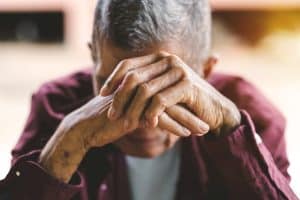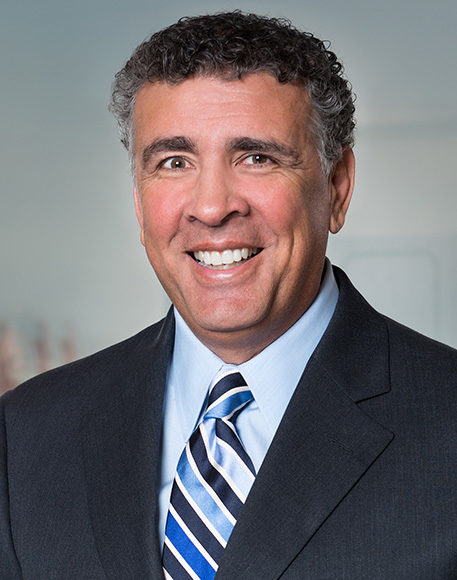What Are the Most Overlooked Signs of Abuse and Neglect?
 If you have an elderly loved one in a nursing home, it’s vital to remain alert for signs of neglect or abuse. However, in all but the most obvious of cases, this can be difficult. Today we want to talk about the signs of abuse and neglect, as well as some indicators of abuse that may be overlooked.
If you have an elderly loved one in a nursing home, it’s vital to remain alert for signs of neglect or abuse. However, in all but the most obvious of cases, this can be difficult. Today we want to talk about the signs of abuse and neglect, as well as some indicators of abuse that may be overlooked.
The National Center on Elder Abuse reports that one in every 10 adults in the United States experienced “some form of abuse in the prior year.” This is up to five million Americans every year. Abuse can be physical, emotional/psychological, sexual, and financial.
It’s important to understand the signs of abuse and neglect to keep your loved one safe and protected from harm. Sometimes, however, you may not recognize a sign of abuse or nelgect for what it is.
Here are some other, more overlooked signs of abuse and neglect in nursing homes:
- Depression: Certain medications can make your loved one feel and act differently. Some elderly residents suffer depression simply because they are no longer in their own homes. But depression can also be the result of abuse or neglect. If your loved one appears disinterested in engaging in activities, seems emotionally detached, or presents with a diminished appetite, they could be depressed. It’s important to talk to nursing home staff about their behavior change.
- Weight loss: For some seniors, weight loss is the result of being placed on a healthy diet as mandated by the doctors and nurses. However, rapid weight loss can indicate that a resident is not being provided enough food or water. Alternatively, your loved one could be depressed and having trouble eating. If you notice this change in your loved one, talk to nursing staff right away.
- Bedsores: You may notice that your loved one has developed bedsores. You should notify nursing staff immediately, as bedsores form when a patient is not being bathed and moved consistently and properly. They are a common risk for people who are bedridden or have mobility issues; as such, you may be told that these injuries are to be expected, when in fact they are the result of neglect.
- Sexually transmitted infections (STIs): The rate of seniors with STIs has increased exponentially over the past 20 years. Folks are living longer, and thanks to medications like Viagra, they’re able to enjoy a fulfilling sex life well into their later years. STIs, however, can also be a sign of sexual abuse by caretakers, staff, and/or other residents. If your elderly loved one has a sexually transmitted infection, you should seek outside medical attention as soon as possible.
- Overmedication: Doctors may prescribe sedatives for patients experiencing anxiety or frustration, often associated with conditions like dementia. Using medication as a form of chemical restraint, however, is against the law. If your loved one is suddenly lethargic or displays a decreased cognitive ability, they may be overmedicated. Ask the nursing home staff if your loved one has been placed on any new medications, find out what they are, and what their purpose is.
- Multiple falls. Elderly people fall more often for a variety of reasons. A loss of muscle mass, decrease in visual acuity, reactions from multiple medications, changes in gait – any of these can increase the risk. Falls should be largely preventable in nursing homes, however. If your loved one is repeatedly falling, the nursing home may be held accountable. Talk to your loved one and nursing staff to determine how to decrease the risk of falls.
- Wandering and elopement. This is when a resident wanders the premises or leaves the premises altogether, which is extremely dangerous. It’s more common with residents who suffer cognitive decline, but the nursing home should take steps to reduce this risk, like locking doors and hiring adequate security. Nursing homes that fail to keep their residents safe and secure can be held liable.
If you notice any of these issues with your loved one, it is important to open a discussion with them about what might be happening (if they are able), as well as to bring your concerns to the nursing staff. You may also want to work with an experienced nursing home abuse and neglect lawyer like those at Garcia & Coman for further resources and assistance.
What to do next if you suspect nursing home abuse or neglect
If you suspect nursing home abuse or neglect, it’s important to take immediate action to ensure the safety and well-being of your loved one. Here’s what you can do:
- Document your concerns: Keep detailed records of any signs or incidents you observe that suggest abuse or neglect. Include dates, times, and descriptions of what you witnessed.
- Report your suspicions: Contact the nursing home administration or management to report your concerns. The nursing home should have procedures in place for addressing allegations of abuse or neglect. Request a meeting with management to discuss your observations. Ensure you document this meeting.
- Contact Adult Protective Services (APS): If you believe your loved one is in immediate danger or if the nursing home administration does not adequately address your concerns, contact your local Adult Protective Services agency. APS is responsible for investigating reports of abuse, neglect, and exploitation of vulnerable adults. You can search for Adult Protective Services in your location here.
- Seek medical attention if necessary: If your loved one has suffered injuries or health problems as a result of suspected abuse or neglect, seek medical attention immediately. Document the injuries with photographs and medical records.
- Support your loved one: Offer your loved one emotional support and reassure them that you are taking their concerns seriously. Encourage them to speak up about any mistreatment they have experienced or witnessed.
- Follow-up: Continue to monitor the situation and follow up with nursing home administration and/or APS to ensure that appropriate actions are taken to address your concerns. Our attorneys can help you with this.
Our lawyers are here to help if you believe your loved one is suffering from abuse or neglect in a nursing home. The attorneys at Garcia & Coman have over 30 years of experience helping families just like yours when nursing homes fail in their duty to protect their residents from harm. We can step in and provide the protection your loved one needs while fighting for compensation for their injuries and damages. Are you ready to talk to us? Simply fill out our contact form or call our office to arrange a free, no-obligation case review today. We have offices in Phoenix, Long Beach, Los Angeles, Louisville, and New Orleans.

Stephen M. Garcia represents victims of elder and nursing home abuse and is known as one of the leading civil litigators in the country. He is Senior Partner at Garcia & Coman, where the firm’s practice is focused on elder abuse, nursing home abuse, and wrongful death of the elderly.
Find out more about Stephen M. Garcia

